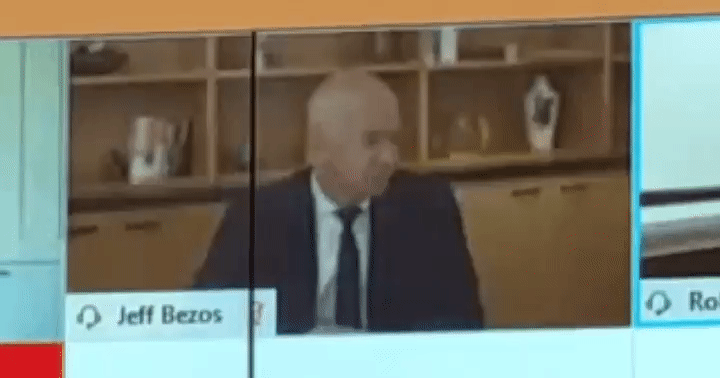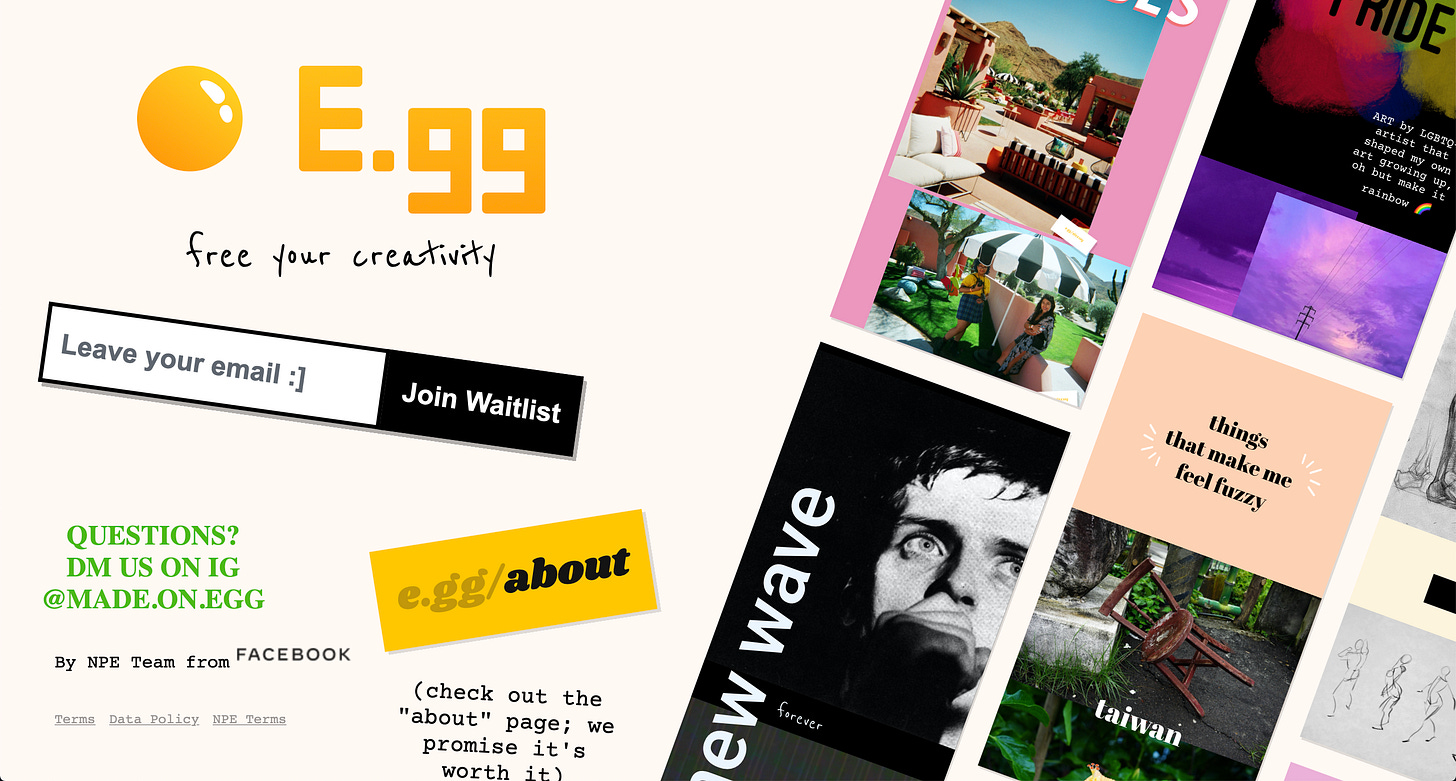👋 Welcome to the FWIW by David Tvrdon, your weekly tech, media & audio digest.
🌐 Online version. 👉 Be sure to subscribe, if you were sent this newsletter.
In this edition
🕵️ Big Tech CEOs testify before Congress
🎧 Spotify Q2 earnings
💬 Other tech, media & podcasting news

What did Bezos, Zuck, Cook & Pichai say?

📸 by Morning Brew on Unsplash (with a small edit by me)
The ‘Online Platforms and Market Power’ hearing, as the House Judiciary Committee, named the antitrust virtual hearing of the four big tech CEOs took finally place on Wednesday.
The leaders of Amazon, Apple, Facebook, and Google answered tough and silly questions alike for more than 5 hours. They testified via videoconference because of the coronavirus pandemic.
NY Times has a breakdown of how many times each CEO was questioned by a congressperson:
Mark Zuckerberg: 62
Sundar Pichai: 61
Jeff Bezos: 59
Tim Cook: 35
This is a good intro and description of the current mood in Washington by The New York Times:
Not since Microsoft stood trial in the late 1990s for antitrust charges have tech chief executives been under such a microscope for the power of their businesses. With echoes of the trustbusting of U.S. Steel and Standard Oil more than a century ago and AT&T in 1984, the hearing underlined the government’s recognition that this cohort of tech companies — which wield immense control over commerce, communications and public discourse — had become the new trusts of the internet age.
Here is a good and short (8 min.) video recap, if you want to get an idea of what was happening.
Congressmembers have undertaken a 13-month investigation, which has produced 1.3 million documents with evidence. And the hearing, I can honestly say, wasn’t embarrassing most of the time.
Of course, there were the expected conspiracy theories by some Republicans but all in all, it was refreshing to see a competent line of questioning. A reservation many people voice on Twitter was regarding the “attack style” of congresspeople. That is not something new and in 5 minutes (which each member got in one go) you cannot expect an interview. And of course, the CEOs were well-prepped to not go into a productive interview mode.
Tech CEOs antitrust hearing: What did we learn?
Probably the biggest revelation came in the first hour when the antitrust panel revealed messages between Facebook CEO Mark Zuckerberg and his chief financial officer, David Ebersman proving the social network acquired Instagram because of fear of competition.
“Instagram can hurt us meaningfully without becoming a huge business,” wrote Zuckerberg at the time according to emails.
“Facebook, by its own admission ... saw Instagram as a threat that could potentially siphon business away from Facebook,” Rep. Jerry Nadler (D-NY) said during the hearing on Wednesday. “So rather than compete with it, Facebook bought it. This is exactly the type of anti-competitive acquisition the antitrust laws were designed to prevent.” (The Verge)
Amazon CEO Jeff Bezos had to mostly answer queries about the company’s controversial use of data about third-party sellers on its platform to inform the development of its own products (because of this revelation). Bezos was also pushed on counterfeit goods.
Questions on Google focused on its search engine (The Markup investigation mentioned below in this newsletter, scroll👇), that it often privileges results from Google-owned properties at the expense of small businesses and some lawmakers focused on its relationship with Pentagon.
Tim Cook of Apple got the least amount of questions, he was mostly pressed on App Store practices. As Casey Newton of The Verge notes in his newsletter:
One place where Cook was let off the hook almost entirely: there were very few questions about the company’s reliance on China as a supplier or a market for its products.
If I had to sum it up all by two sentences, I would use these by NY Times (from the live coverage): Democrats dug in with accusations of anticompetitive behavior. Republicans focused on bias concerns about platforms.
Will see how this is going to play out in the future, Rep. David Cicilline, the chairman of the antitrust subcommittee, ended the hearing by saying he is convinced that there needs to be action taken by Washington towards the Big Tech companies. “Simply put: They have too much power.”
The memes
Maybe one of the funniest moments came when Jeff Bezos forgot to unmute himself (in the video it’s around 1:10).


As always, some of the lawmakers just could not mention Twitter. Congressman Sensenbrenner had even confused Facebook with Twitter.
90 minutes in, Jeff Bezos did not get a single question and the camera caught him eating a snack.


This video edit is super fun.
And my own try to be funny.

🙏 Liked it so far? ❤️ Support this newsletter by sharing it, thanks!

In other news
TECH
🏠 Google will keep its employees home until at least July 2021. This is huge news and the search engine is the first major U.S. corporation to formalize such an extended timetable in the face of the coronavirus pandemic (the move will affect ~ 200,000 full-time and contract employees). As some Googlers pointed out on Twitter, it doesn’t mean everybody is going to work from home until July 2021. Still, we might see other big companies follow and will see how they will perform under home office for the majority of their staff. [Wall Street Journal]
💰 Facebook has a plan to lure popular TikTok users to Instagram Reels. Well, it’s not a super sophisticated strategy but one that has worked before. Facebook is prepared to pay hundreds of thousands of dollars to TikTok users with millions of followers to persuade them to use a new competing service. It might just be possible that a couple of dozen stars could make the change. Will see. [Wall Street Journal]
🚫 India is planning to ban another 275 Chinese apps. This follows the high-profile ban of 59 Chinese apps last month, including short video app TikTok. The list includes gaming app PubG backed by China’s most valuable internet major Tencent, Zili by phone maker Xiaomi, AliExpress by e-commerce giant Alibaba as well as apps like Resso and ULike from TikTok-owner ByteDance. The government is also looking to formalize a process for such bans in India. [The Economic Times]
🔍 Google’s top search result? Google! The investigative team at The Markup examined more than 15,000 recent popular queries and found that Google devoted 41 percent of the first page of search results on mobile devices to its own properties and what it calls “direct answers,” which are populated with information copied from other sources, sometimes without their knowledge or consent. The reason for this is simple: Google makes five times as much revenue through advertising on its own properties as it does selling ad space on third-party websites. The study was also cited in the antitrust hearing. [The Markup]
👀 TikTok's new CEO Kevin Mayer says it'll release code driving its content moderation algorithms. That’s actually something Kevin Roose, a NY Times tech reporter suggested. [Axios]
✝️ The Vatican is said to be hacked from China. Seems like for Chinese hackers nothing is holy. The attack is likely connected to the talks in September between the two over control of the appointment of bishops and the status of houses of worship. It’s not uncommon for China to use hackers to gather sensitive information before such meetings. [The New York Times]
MEDIA
🎧 Spotify hits 299 million active users in Q2. The streaming service now has 138 million paying subscribers. And as of June 30 global consumption hours have recovered to pre-COVID levels. About 21% of total Spotify users listen to podcasts, up from 19% in Q1 2020. Podcast consumption continues to grow at “triple-digit rates” year over year, the company said. [Variety]
🇭🇺 Hungary buries another independent news outlet. Honestly, this is scary and sad. Index.hu has been the last big website that wasn’t controlled by Orbán’s propaganda machine. Nearly all regional media are part of the Fidesz media empire. Index reporters have formed a Facebook group to try to continue their work. And also a Facebook page, which has almost 250k likes at the moment. [BBC, Slovak Spectator]
👋 Reporters are leaving newsrooms for newsletters. Another new piece that digs into the success of Substack (the same platform I am using for this newsletter). Below are some interesting quotes and numbers. The article also mentions an author who says she is making a living off of it and feels more financially secure than when she worked in a newsroom. [Washigton Post]
In 2017, the New York Times reported that readers who signed up for the paper’s free newsletters were twice as likely to become subscribers.
“Newsletters meet people in their habits,” said Sam Ragland, a faculty member at the Poynter Institute, a journalism think tank. “If you can meet people where they are, you’re more likely to retain them to get their attention.”
⌛ The Financial Times improved reader habit by 39%. How? By taking influence from the bubbles format seen in Instagram stories, Snapchat, and Google photos. The task was to “increase engagement with myFT in the App”. MyFT is a Financial Times feature that enables readers to select topics of interest to follow, thus creating an onsite feed that is customized to their specific needs. Smart move copying a format that is already spreading in social media apps, so that you are not introducing a new element, rather one that your readers are for sure familiar with. [Medium]

🎥 Movies will go to digital rentals much sooner. Universal Pictures and AMC announced a landmark deal: Universal will have the option to put its movies on digital rental services (iTunes, Amazon) after they have played in theaters for 17 days (before it was 90 days). Huge deal for streaming and probably not great for theaters. [Bloomberg]
🏆 The Emmy nominations brought a surprise: Netflix beat HBO. The streaming service earned 160 total nominations to HBO’s 107 this year. Over the previous three years, the two companies were never separated by more than 19 nominations. See the full list here. [Quartz]


PODCASTS
🎤 Deepfake voice for $30 / month. OK, it’s not exactly deepfake as you just write down something and the service translates it into sounding as your voice. Podcast editor Descript adds new pro tier with access to its AI voice double feature called OverDub which has been in beta for months now. How does it work? Descript learns your voice by you reading something for several minutes and after processing, it can pretty convincingly imitate your voice. [The Verge]
OTHER NEWS
🐣 Facebook has been quietly putting out eccentric apps such as E.gg. [The Information]
We started working on E.gg after a few of us found ourselves missing a certain raw and exploratory spirit that was so emblematic of The Early Internet. Sure, it was clumsy to use — dangerous at times, even — but in that awkward mess was a weird and enlivening bazaar of manically-blinking GIFs, passionate guestbook entries, personal webpages made by people who cared deeply about a niche interest of theirs and wanted simply to carve out their own digital space.

Catch me on Twitter or LinkedIn. Was this forwarded to you? 👉 Subscribe over here.








